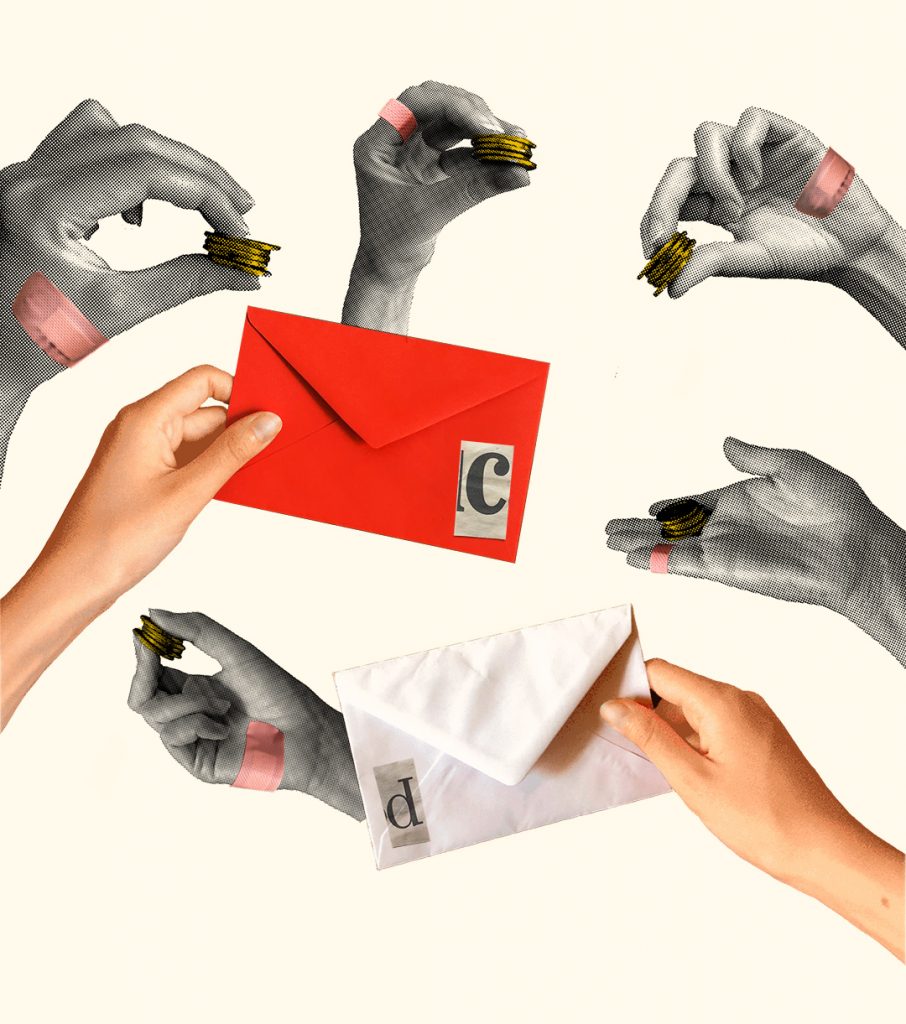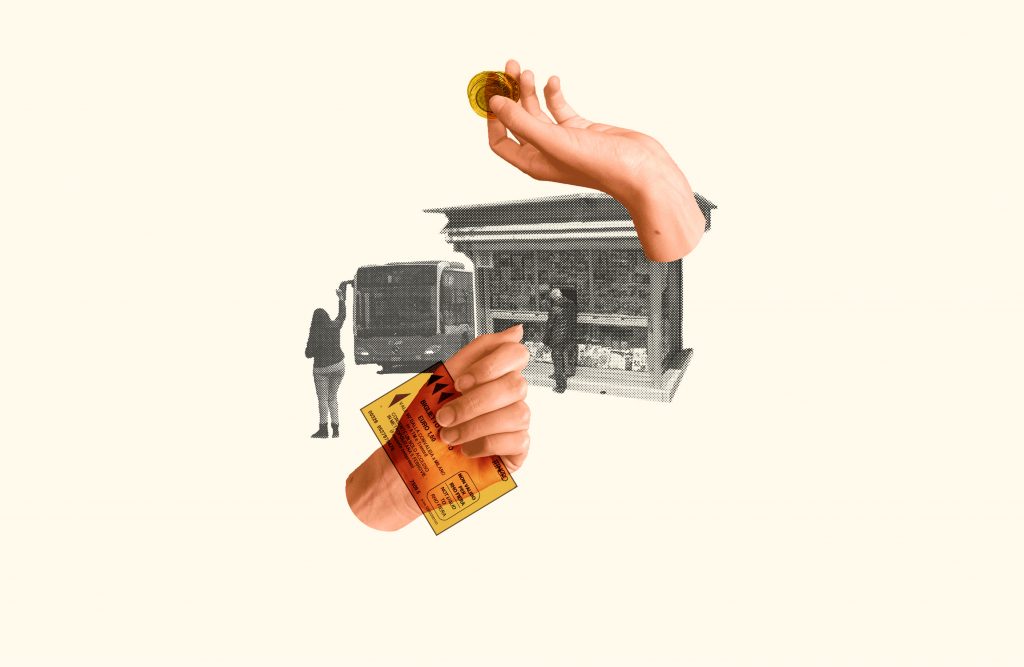It’s Monday morning and you are going to catch the bus. You have the money for the ticket in your pocket, and you have plenty of time to buy it. You are just about to buy the ticket, and when you are just about to put the money in the ticket machine, you catch an announcement saying that there will be a strike of the bus conductors. Nobody will be able to check your ticket. What are you going to do? Are you going to buy it, or not?
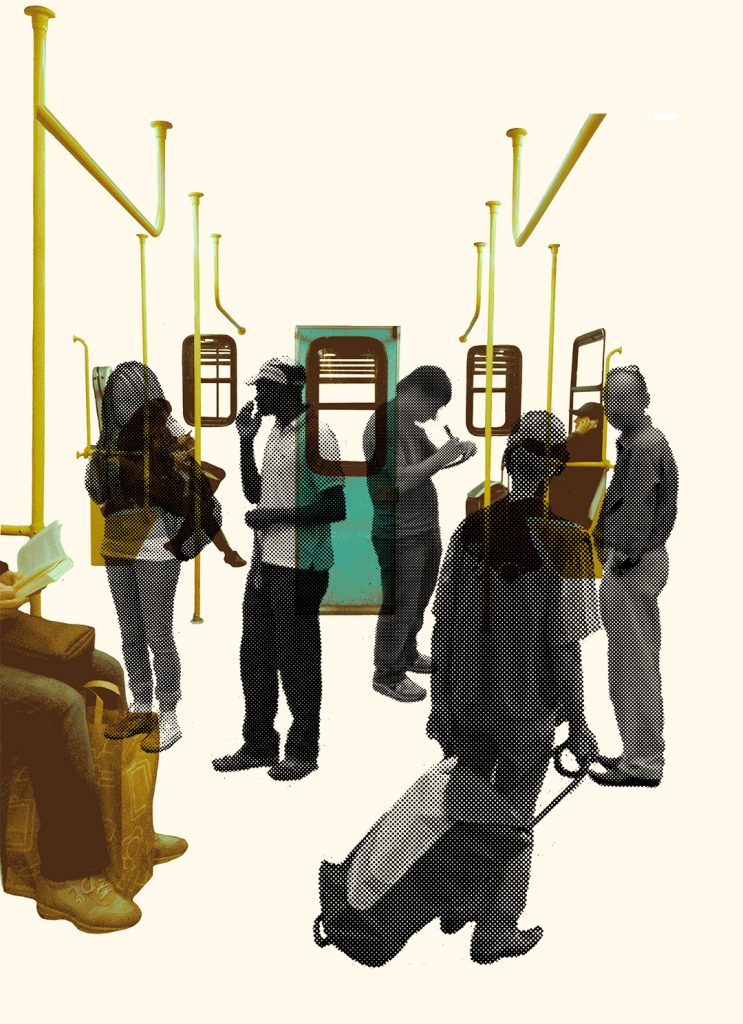
In the city of Milan, a relatively small town compared to New York or London, every day it is estimated that 3% of the 1.15 million underground users don’t pay for their ticket, the percentage increasing to around 10% if you consider buses and streetcars, where not paying is easier. Fonte:Meko The problem is not so much the number in itself, but the fact that the fewer people pay, the more the rest feel entitled not to do so.
| Barcelona | Lisbon | London | Marseille | Prague | Stuttgart | Milan |
| 1.09% | 4% | 1.10% | 20% | 4% | 2.63% | 8-10% |
In economics such a type of behavior is called a “free rider”. A free rider is someone who benefits from a public good without contributing to it.”
In economics such a type of behavior is called a “free rider”. Fonte:Marwell A free rider is someone who benefits from a public good without contributing to it. There are plenty of examples of free riders from everyday life, from those who leave public bathrooms dirty, to those who take the bus without paying the ticket, or, more classically, those who evade taxes but benefit from the same national health system for which everyone else but them has paid.
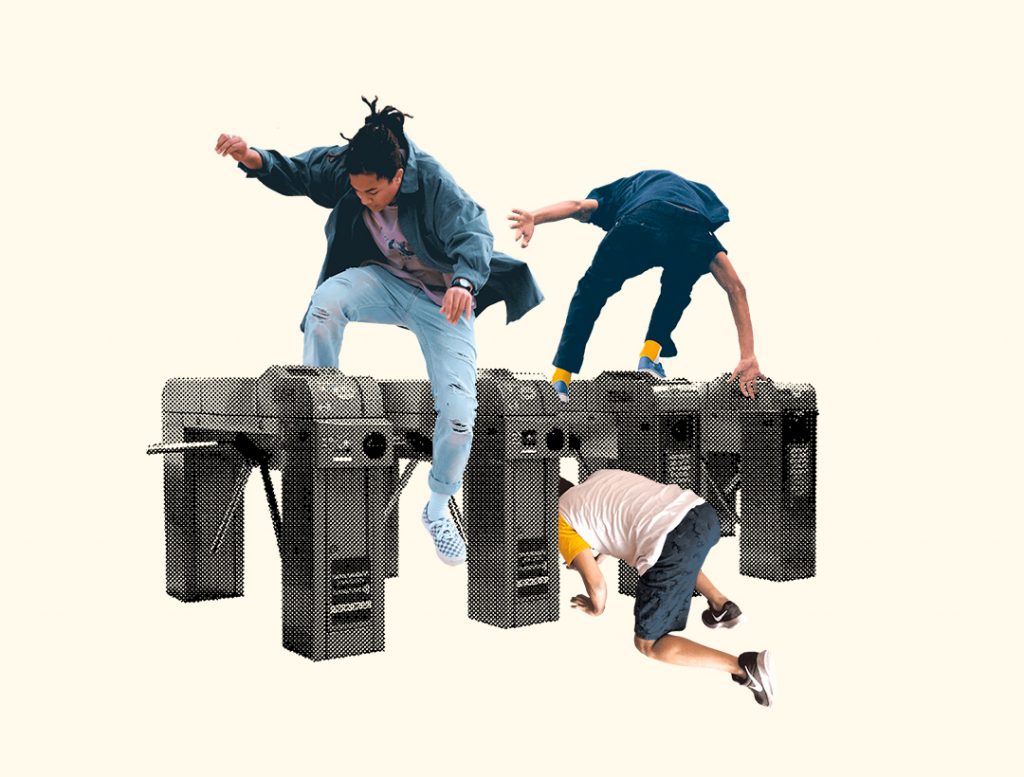
But why do we become free riders?
Is it a natural instinct?
The phenomenon is quite fascinating, being rather democratically spread among world populations, and since the eighties numerous experiments have been conducted to reveal its mechanism. We want to talk about the most famous one. Fonte:Andreoni
Imagine you are part of a group of 5 people, each of whom is given 10 tokens. You can decide to put each token in one of these two envelopes:
- Envelope A, private property. For each token you put in you receive 10 euros.
- Envelope B, public good. For each token you put in B, you receive 5 euros, but all other participants also receive 5 euros for each token.
Every participant can decide where to put their token, but only at the end will they find out what the others decided.
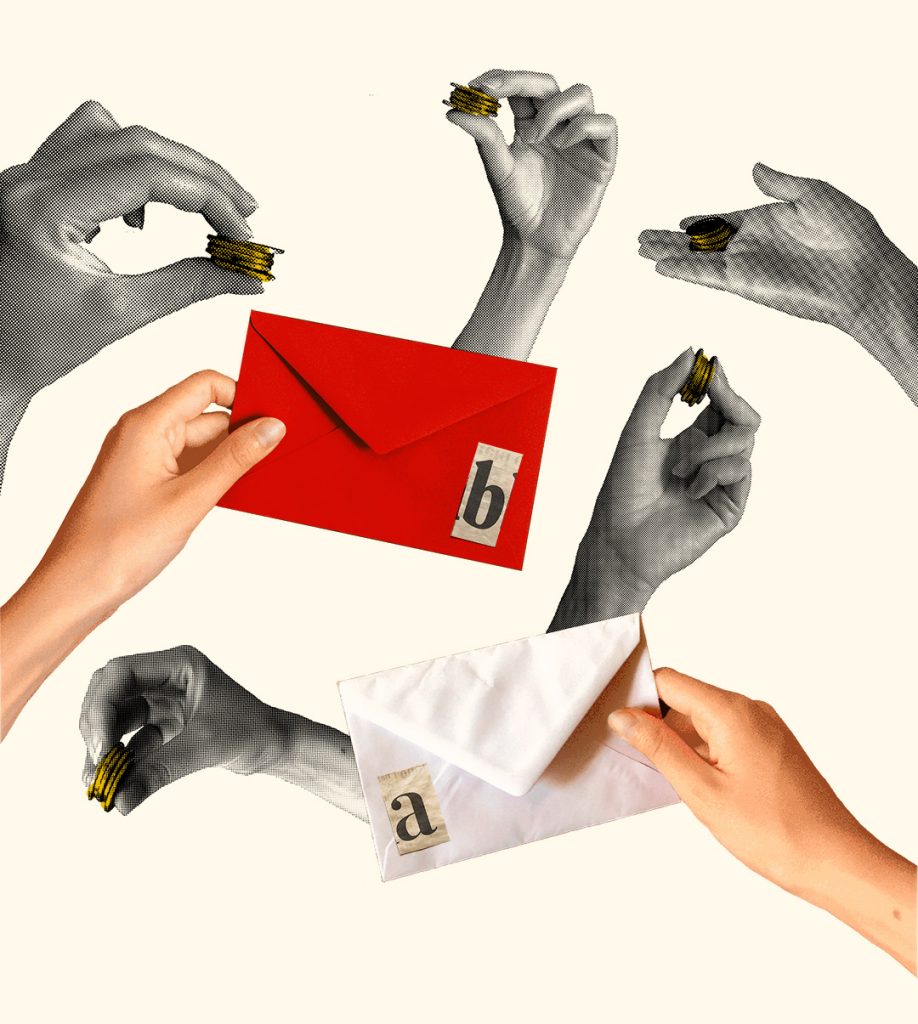
It is not difficult to understand that if everyone puts all their tokens in envelope A, everyone will get 100 euros. If, instead, everyone puts all their tokens in envelope B, everyone will get 50 euros multiplied by each of the 5 participants, which means 250 euros! In the game, the participants will be asked to do this 10 times, seeing the results of the others’ choices, each time.
What would you do?
Think over it,
before you carry on.
Do you trust the other participants enough to invest everything in envelope B? Or do you invest everything in envelope A and hope that the others will put the tokens in envelope B instead? Or do you do half and half?
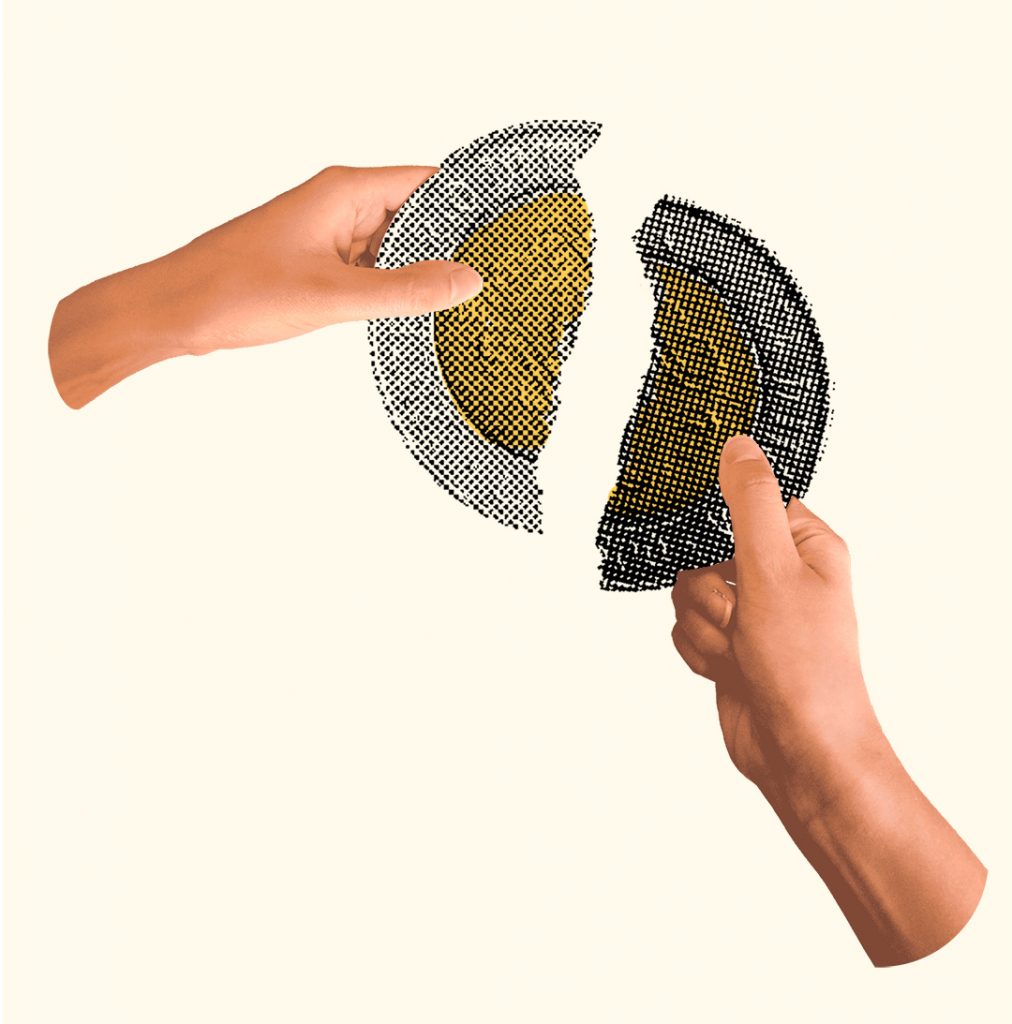
Those who decide to put everything in envelope A and hope that others will put something in envelope B are the perfect free riders: they benefit from goods they have not contributed to. Interestingly, general economic theories describe human beings as “rational and selfish”, which means that you would expect everybody to put everything in envelope A. However, when the experiment was conducted with real people, things went quite differently. It seems we are not all freeriders: on average, people put five tokens in envelope A and five in B.
“On average” however means just that – there is someone putting everything in envelope A and another putting it all in B, and all points in between. Let’s be clear, putting everything in A is allowed by the rules of the experiment, and is “legal”. However, if you had gone “all B” wouldn’t you feel a bit cheated?
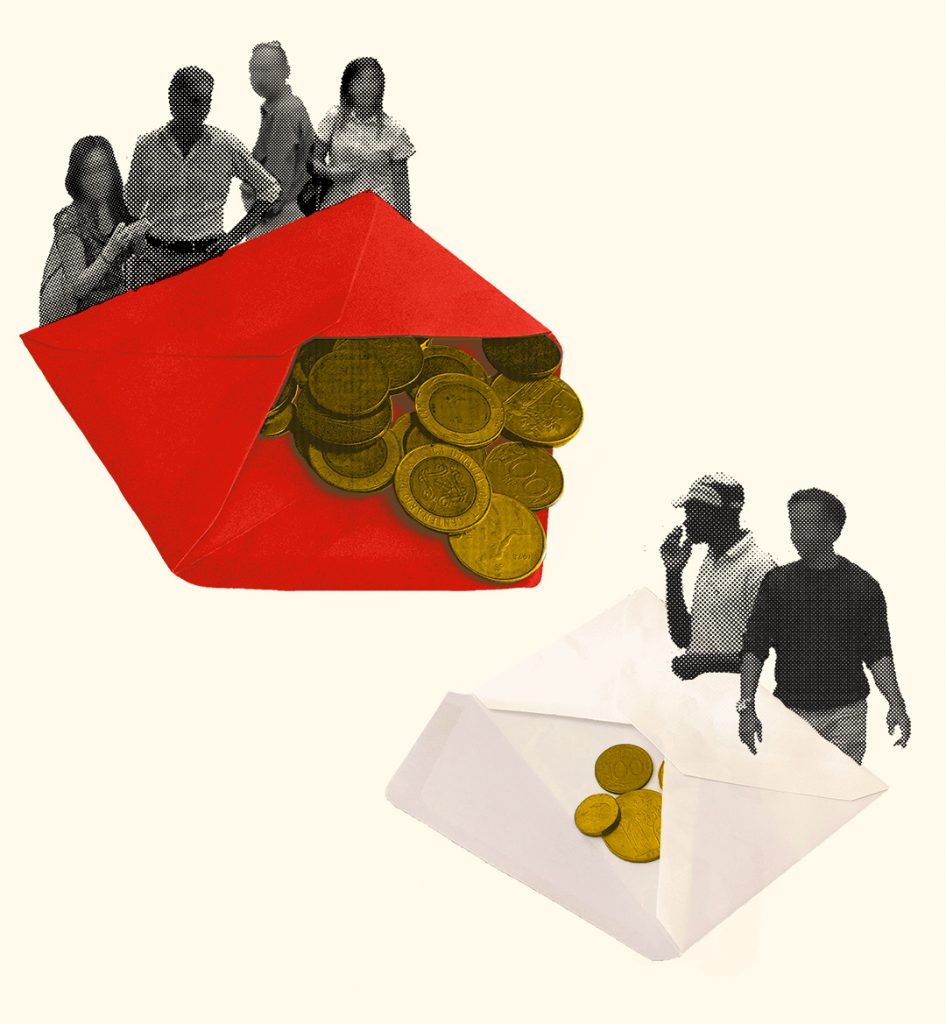
Many people would, and when the experiment is repeated, always with the same people and the same 10 tokens each round, things start to get worse. By the fifth time around, there are four tokens in envelope B, by the eighth round there are two, and by the tenth round, sadly, only one.
The moral: if we see somebody else cheating the system, we cheat too.
It is okay to be altruistic, so long as we don’t like to feel like idiots. Depressing, isn’t it?
But this is not the end of the story. Once the first game was over, after 10 rounds with the same people, the scientists leading the experiment started the game all over again. What happens to the same people who, on average, at the end of the last game moments earlier had put just a single token in envelope B? In the first round of the new game, conducted immediately after the end of the first game, they average five tokens in B, exactly the same as at the beginning of the first game. Unbelievable, isn’t it? It’s as if they believe in humanity again, they give others a new chance, even though they have just experienced first hand what the rest of the group is capable of.
It’s not entirely true that being a free rider is a natural instinct. We are an intrinsically collaborative species: collaboration and cooperation gratifies us.”
This means that it’s not entirely true that being a free rider is a natural instinct. We are an intrinsically collaborative species: collaboration and cooperation gratifies us. At least this is what the psychologist Michael Tomasello, an American developmental and comparative psychologist, is convinced of and writes about in his book “Why we cooperate”. Fonte:Tomasello What is clear is that free riders are a bit like a cancer cell: they benefit from the body that hosts them and gradually infect the other cells. In the end it becomes a matter of social pressure rather than instinct. If we have the impression that everyone is behaving badly, we tend to do so too. The easiest example of where we can see such a mental-trick in action is with taxes: if we believe that our neighbour doesn’t pay taxes, we will feel entitled to evade them too if we can. But, if we can change our perspective, and from tomorrow we start telling everyone that we all pay our taxes, maybe even those who did not pay them before will start to do so.
But this is a story for another time.
